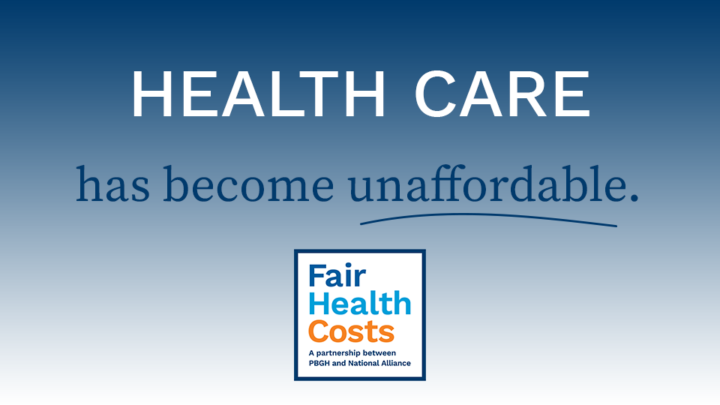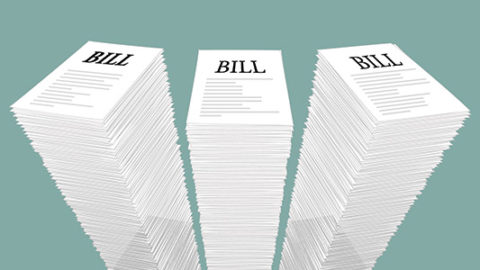Support for Government Intervention to Solve Rising Health Care Costs

TOPLINES
Ever-rising health care costs are causing many across the political spectrum to rethink their priorities and positions on key health care policy issues. In fact, two recent surveys show both a majority of voters and a majority of executive decision makers at large private employers support government intervention to lower health care costs.
Public support
According to a survey conducted by a bipartisan polling team and supported by Arnold Ventures, 90% of voters say it is important for Congress to take action to reduce health care prices. Additionally, more than two-thirds of voters indicated that reducing health care costs is their top priority for the President and Congress, above other high priorities like investing in infrastructure and providing support for small businesses.
When asked about limiting the prices that hospitals can charge to no more than two times what Medicare pays, 78% of voters expressed support. Limiting hospital prices has broad support among all voters, regardless of political party, with 82% of Democrats and 74% of Republicans supporting it. This is a clear demonstration that lowering out-of-control health care costs is not a partisan issue.
The results from this survey of voters closely mirror the results from a survey of executive decision makers at more than 300 large private employers conducted by PBGH and the Kaiser Family Foundation (KFF). The survey found significant concerns regarding health care costs, and a significant majority of responding large employers, 83%, agreed that the cost of health benefits is excessive. In addition to agreeing that costs were excessive, 87% of respondents believe that the cost of providing health benefits to employees will become unsustainable in the next five to 10 years, and 85% believe that there will need to be greater government roles in providing coverage and containing costs.
Employers did not blame one cause for excessive costs, with large shares agreeing that the cost of prescription drugs, provider market consolidation and increased market power, volume-based payments and unhealthy behaviors are factors for high costs.
The underlying problem
How we view health care in the United States is changing. The COVID-19 pandemic has made even more clear the problems with our current system, including high costs, incomplete coverage, limited access to care, under-investment in public health and serious racial and ethnic inequities. These problems existed before the pandemic, but it has brought these issues and other problems with our health care system to the forefront.
The bottom line is the cost of health care in the U.S. has become unaffordable for families and employers and health outcomes are poor. High health benefits costs come at the expense of core business investments and hold down wages, dampen business growth and squeeze family budgets.
Increasingly high health care costs for private purchasers in the U.S. are driven primarily by high prices in the commercial sector. Hospital prices in commercial plans across the U.S. in 2018 averaged 247% of Medicare payments and the gap has been increasing. This trend is largely the result of industry consolidation and use of anti-competitive contracting practices and pricing strategies by hospitals, health systems and provider groups to gain market power.
The lack of functional and effective markets in the private health care system is driving the out-of-control health care costs too many of us are faced with. Effective markets require healthy competition among providers, health plans, drug manufacturers and suppliers; transparent information on quality, patient experience, health equity and prices and meaningful choices for consumers. Unfortunately, these conditions are not met in all markets; costs are higher in those markets as a result.
The solution
In some market segments and geographic areas, the potential for healthy competition exists. But markets are threatened and undermined by dominant industry players. In these situations, government needs to strengthen anti-trust enforcement and explicitly prohibit anti-competitive practices that have been the driver of high prices. In other areas, the market is fundamentally broken and it is nearly impossible to address costs through competition. In these situations, government needs to step in to limit prices.
The problem is clear and requires direct government action. We know the majority of voters and executives at large employers overwhelmingly support the kind of action needed. Our leaders simply have to be willing to address the root causes of the problem.
The Biden administration has acknowledged the health care cost problem. Recently, President Biden issued an executive order to promote competition in the American economy. The order directs federal agencies to take steps to restore healthy competition to health care markets. It targets two key factors behind overall high health care costs – drug costs and hospital costs. Our policy makers must continue to work lower health care costs with concrete policy solutions.



